
Lamia: The Hidden Gem of Central Greece
Nestled at the foot of Mount Oeta and surrounded by lush green valleys, Lamia is a city rich in history and culture. The city offers a charming blend of ancient ruins, medieval fortresses, and modern amenities. Walking through its streets, you will encounter a captivating mix of old and new, making it a fascinating destination for any traveler. Lamia is known for its strategic location, making it a significant city throughout Greek history. The Lamia Castle, perched on a hill, offers panoramic views of the city and the surrounding plains. The castle itself is a testament to the city's historical importance, having been a focal point in various wars and battles over the centuries. The Archaeological Museum of Lamia is another must-visit. It houses a collection of artifacts that date back to the Neolithic period, providing a glimpse into the region's ancient past. The city's vibrant squares, such as Eleftherias Square, are perfect for leisurely strolls and offer a variety of cafes and restaurants where you can savor local delicacies. For nature lovers, the nearby Thermopylae, famous for the Battle of Thermopylae, offers breathtaking landscapes and thermal springs. This area is perfect for hiking and exploring the natural beauty of Central Greece. Lamia's proximity to other cultural and natural landmarks makes it an ideal base for day trips and excursions.
Local tips in Lamia
- Visit the Lamia Castle early in the morning to avoid the crowds and enjoy the best views of the city.
- Spend some time at Eleftherias Square for a taste of local life and cuisine.
- Don't miss the Archaeological Museum of Lamia for a deep dive into the region's history.
- Take a day trip to Thermopylae to experience its natural beauty and historical significance.
- Wear comfortable walking shoes, as many of Lamia's attractions are best explored on foot.
Lamia: The Hidden Gem of Central Greece
Nestled at the foot of Mount Oeta and surrounded by lush green valleys, Lamia is a city rich in history and culture. The city offers a charming blend of ancient ruins, medieval fortresses, and modern amenities. Walking through its streets, you will encounter a captivating mix of old and new, making it a fascinating destination for any traveler. Lamia is known for its strategic location, making it a significant city throughout Greek history. The Lamia Castle, perched on a hill, offers panoramic views of the city and the surrounding plains. The castle itself is a testament to the city's historical importance, having been a focal point in various wars and battles over the centuries. The Archaeological Museum of Lamia is another must-visit. It houses a collection of artifacts that date back to the Neolithic period, providing a glimpse into the region's ancient past. The city's vibrant squares, such as Eleftherias Square, are perfect for leisurely strolls and offer a variety of cafes and restaurants where you can savor local delicacies. For nature lovers, the nearby Thermopylae, famous for the Battle of Thermopylae, offers breathtaking landscapes and thermal springs. This area is perfect for hiking and exploring the natural beauty of Central Greece. Lamia's proximity to other cultural and natural landmarks makes it an ideal base for day trips and excursions.
When is the best time to go to Lamia?
Iconic landmarks you can’t miss
Monastery of Agathon
Discover a serene Byzantine monastery near Lamia, Greece, offering history, spirituality, a natural history museum, and an aviary within Mount Oeta's beauty.
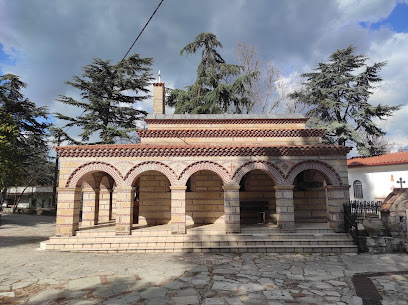
Historical Information Center for Thermopylae
Discover the epic story of the Battle of Thermopylae at the Historical Information Center, where history comes alive in Lamia, Greece.
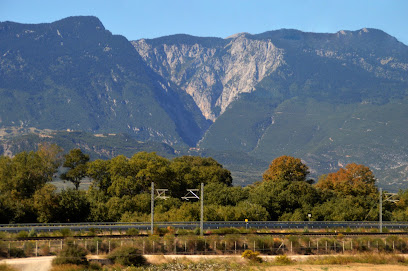
Castle of Lamia (Akrolamia)
Explore the ancient Castle of Lamia: a historic landmark with stunning views and a fascinating archaeological museum.
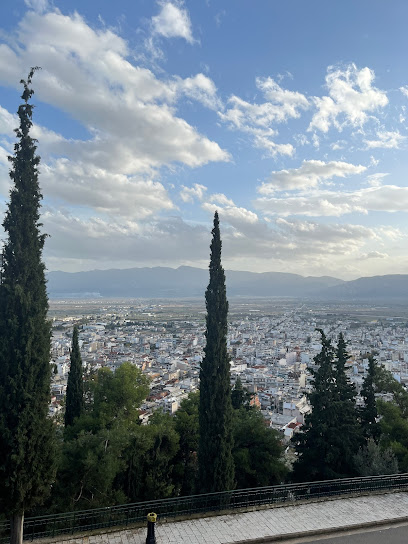
Pelasgia Beach
Escape to Pelasgia Beach: A hidden gem in Greece with clear waters, sandy shores, and a tranquil atmosphere for the perfect getaway.
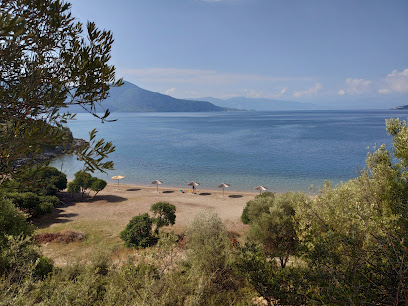
Statue of Aris Velouchiotis
A powerful monument in Lamia's central square, honoring the controversial Greek resistance leader, Aris Velouchiotis.
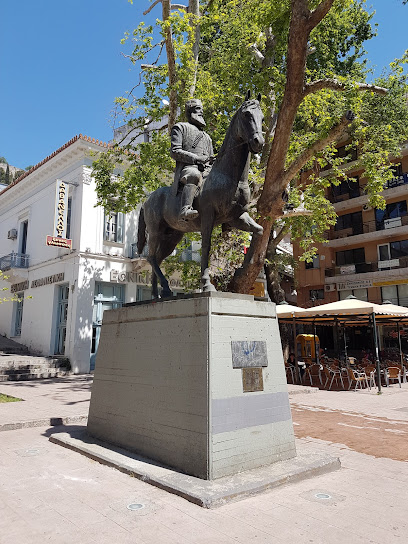
Athanasios Diakos monument
Honor a Greek War of Independence hero at the Athanasios Diakos Monument in Gorgopotamos, a serene landmark steeped in history and national pride.
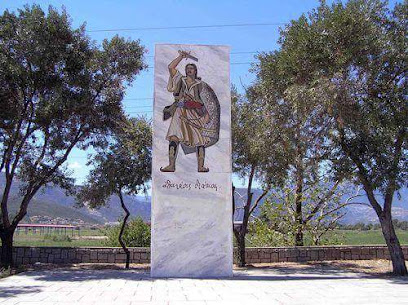
Archaeological Museum of Lamia
Discover ancient treasures at the Archaeological Museum of Lamia, showcasing artifacts from the Neolithic era to the Roman period within the historic Lamia Castle.
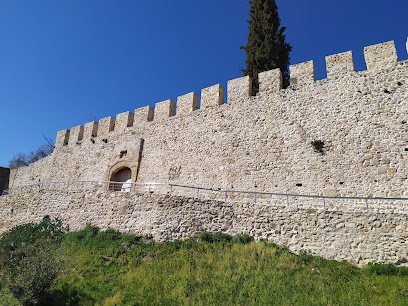
Στήλη των 300 Σπαρτιατών
A modern monument in Lamia honoring the 300 Spartans and their heroic stand at the Battle of Thermopylae.
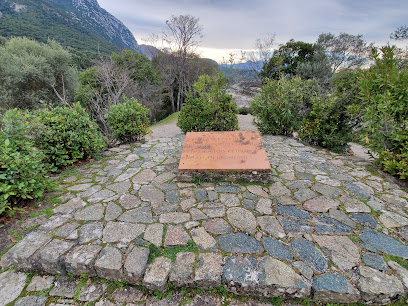
Mnimio Ellina Aeroporou
A serene memorial park in Lamia, Greece, offering a tranquil space for reflection and remembrance amidst peaceful greenery and historical tributes.
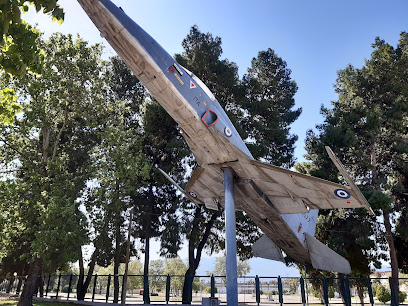
Monument of War
A solemn memorial in Palio Mikro Chorio, commemorating the victims of the 1963 landslide and honoring the village's history.
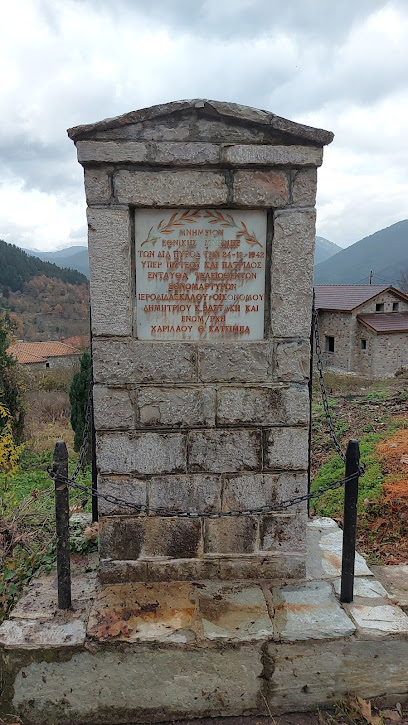
Pl. Laou
Experience the local pulse of Lamia at Pl. Laou, a central square surrounded by shops, cafes, and the everyday life of the city.
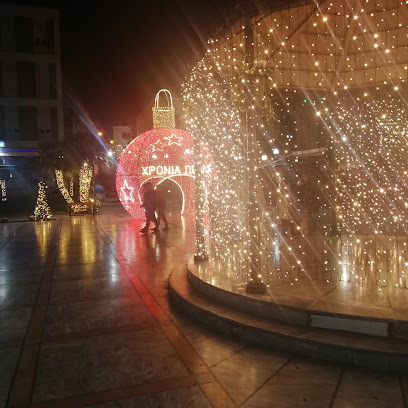
Pl. Karaiskaki
Experience the heart of Lamia at Platia Karaiskaki, a vibrant square where history meets modern Greek life.

Pl. Eleftherias
Experience the heart of Lamia at Platia Eleftherias, a vibrant square steeped in history and surrounded by local cafes and cultural landmarks.
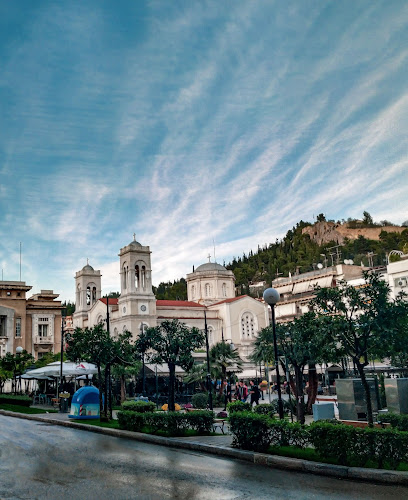
Πλ. Πάρκου
Experience the vibrant heart of Lamia at Πλατεία Πάρκου, a central hub for locals and tourists alike.
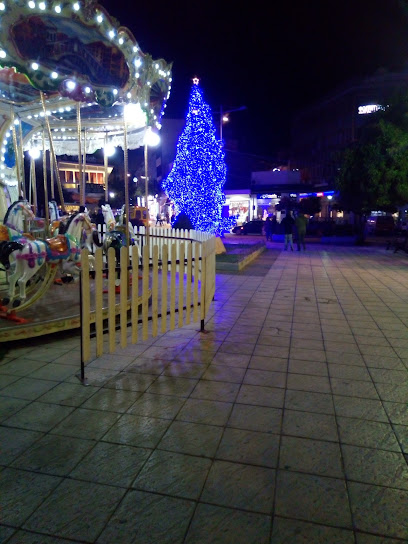
Pl. Diakou
Discover Pl. Diakou in Lamia: a historical square honoring a Greek Revolution hero, offering a glimpse into the city's vibrant culture.
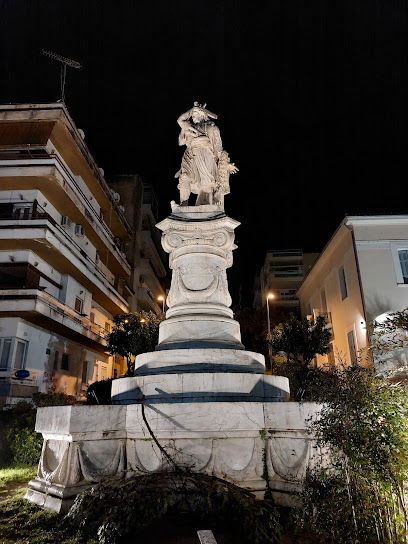
Unmissable attractions to see
Delphi Archaeological Museum
Explore the rich history of ancient Greece at the Delphi Archaeological Museum, home to exquisite artifacts and stunning views.
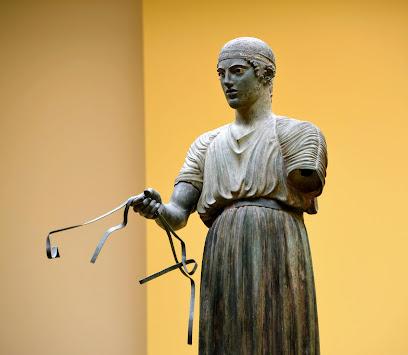
Temple of Apollo
Discover the rich history and stunning landscapes at the Temple of Apollo in Delphi, a UNESCO World Heritage site that embodies the spirit of ancient Greece.
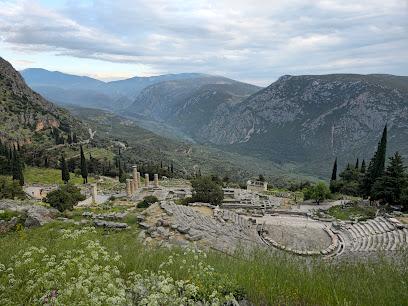
Pavliani Recreation Park
Explore the serene beauty of Pavliani Recreation Park, a lush oasis in Greece perfect for relaxation and outdoor adventure.
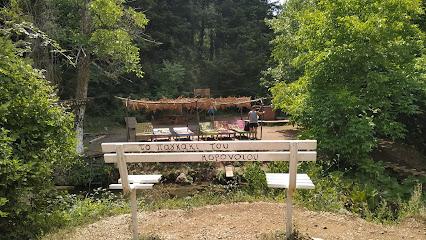
Parnassos Ski Centre
Experience the thrill of skiing at Parnassos Ski Centre, where stunning landscapes meet exciting winter sports in Arachova, Greece.
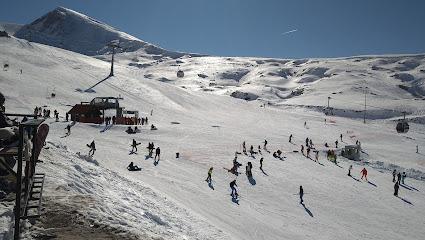
Tholos of Athena Pronaia
Explore the Tholos of Athena Pronaia, a stunning ancient Greek landmark in Delphi that embodies history, spirituality, and architectural brilliance.
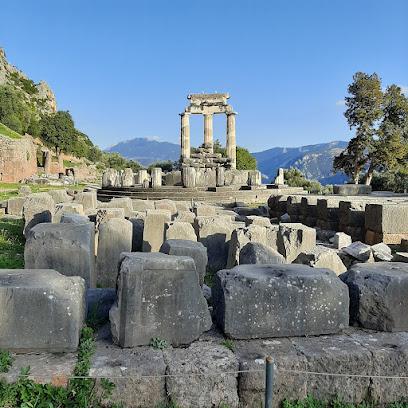
Ancient Stadium of Delphi
Explore the Ancient Stadium of Delphi - a historical landmark steeped in athletic tradition and breathtaking mountain views in Greece.
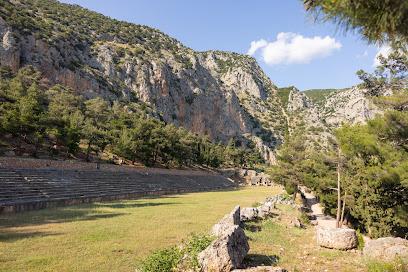
Kavos beach
Explore Kavos Beach in Lichada for breathtaking views, crystal-clear waters, and an unforgettable experience of Greece's coastal beauty.
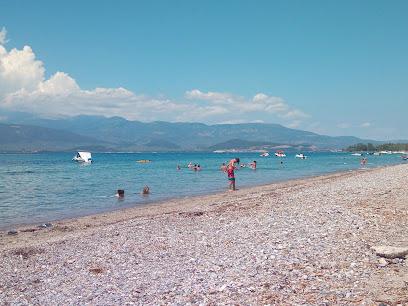
Historical Information Center for Thermopylae
Explore the legacy of the Battle of Thermopylae at the Historical Information Center, a captivating museum in Lamia, Greece.
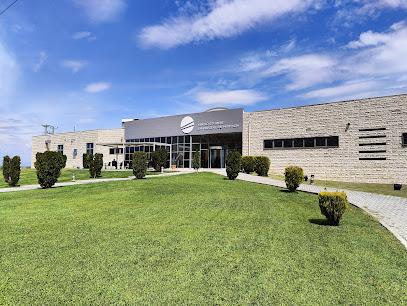
Corycian Cave
Explore Corycian Cave in Delphi, a stunning natural wonder steeped in mythology and history, offering breathtaking formations and panoramic views.
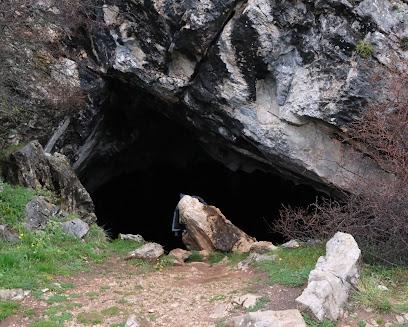
The Athenian Treasury
Explore the Athenian Treasury in Delphi, a stunning historical landmark showcasing ancient Greek architecture and rich cultural heritage.
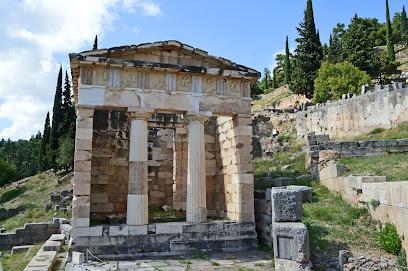
Castalia Spring
Explore the enchanting Castalia Spring in Delphi, a serene historical site where nature meets mythology and invites reflection.
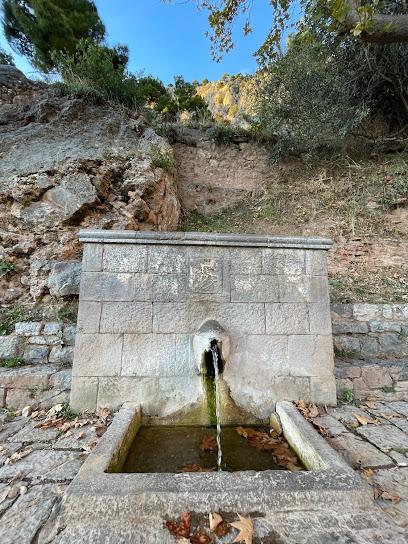
Square Agiou Athanasiou
Experience the beauty of Square Agiou Athanasiou, a peaceful park in Lamia, Greece, perfect for relaxation and cultural immersion.
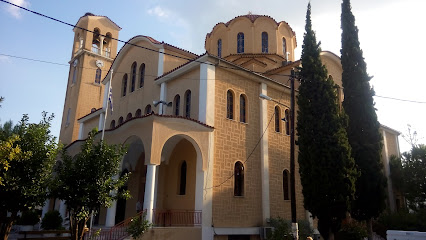
Iron Throne
Experience the magic of the Iron Throne in Pavliani, a thrilling theme park filled with adventure, fantasy, and unforgettable memories for all ages.
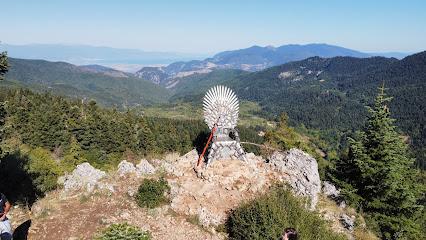
MoKa honey Stories tour
Explore the enchanting world of honey in Itea, Greece, at MoKa Honey Stories Tour. Taste, learn, and enjoy the sweetness of nature.
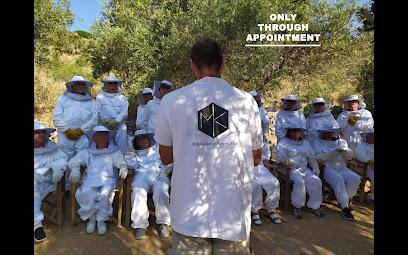
Archaeological Museum of Lamia
Discover ancient treasures and the rich cultural heritage of Greece at the Archaeological Museum of Lamia, a must-visit destination for history lovers.
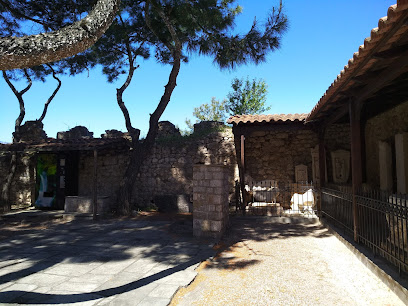
Essential places to dine
Dream Street
Experience the flavors of Greece at Dream Street in Lamia – where traditional meets modern in every dish.
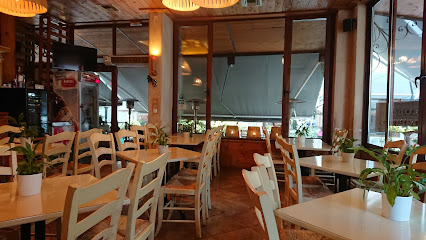
Σούρτα Φέρτα
Discover authentic Greek flavors at Σούρτα Φέρτα in Lamia - where tradition meets culinary excellence.
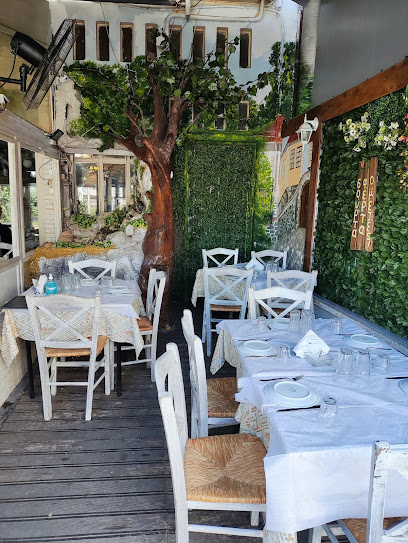
ΚΛΕΙΔΙ-The Street Food Project-
Experience the essence of Greek street food at Kleidi - The Street Food Project in Lamia, where tradition meets modern culinary artistry.
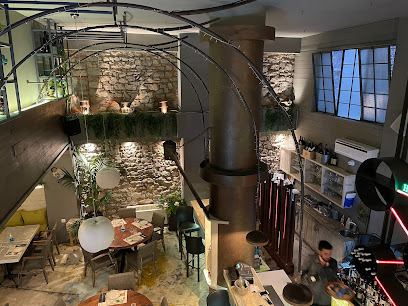
Mpacháriko
Discover the authentic taste of Greece at Mpacháriko - where traditional flavors meet modern hospitality in Lamia.
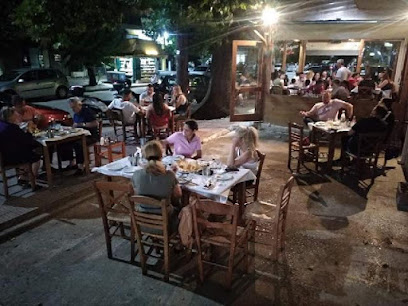
meraklidiko
Discover the authentic flavors of Greece at Meraklidiko, a beloved restaurant in Lamia known for its delightful dishes and warm ambiance.
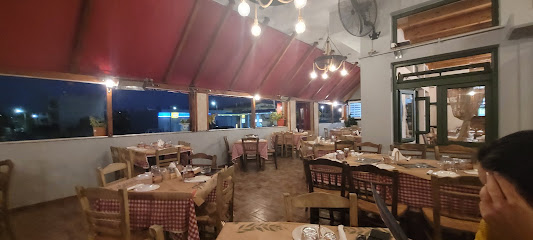
Το Αραξοβόλι
Experience authentic seafood cuisine at Το Αραξοβόλι in Lamia, where every dish celebrates the rich flavors of angler fish.
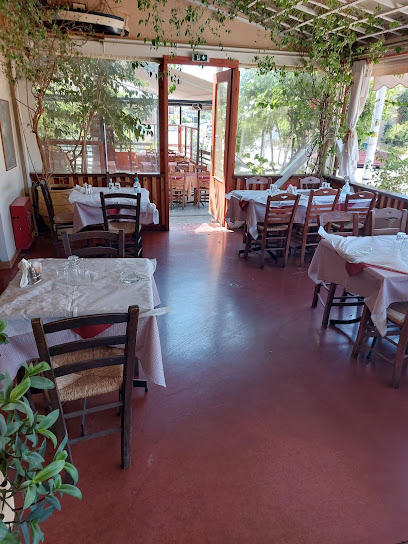
Mini Market
Experience authentic Greek cuisine at Mini Market in Lamia—where local flavors meet warm hospitality.
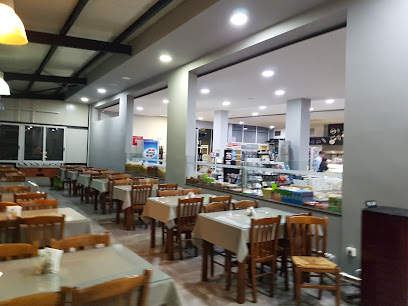
Kapilio
Experience authentic Greek cuisine at Kapilio in Lamia – where every dish tells a story and hospitality knows no bounds.
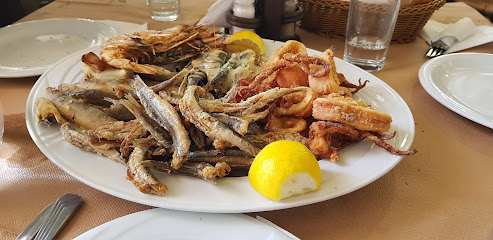
Ταβέρνα-Μεζεδοπωλείο Ή Βοσκοπούλα
Discover authentic Greek cuisine at Ταβέρνα-Μεζεδοπωλείο Ή Βοσκοπούλα in Lamia – where every dish tells a story.
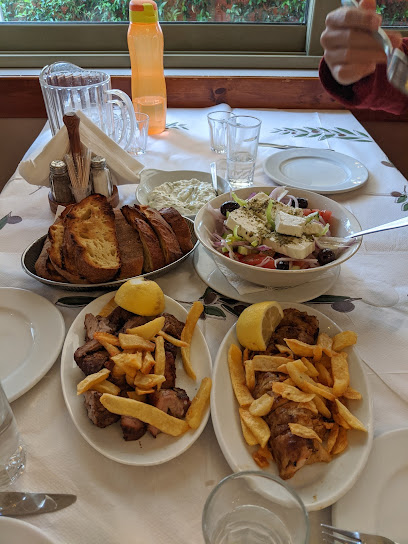
LA PIAZZA
Experience authentic Mediterranean cuisine at La Piazza in Lamia - where fresh ingredients meet traditional recipes for an unforgettable dining experience.
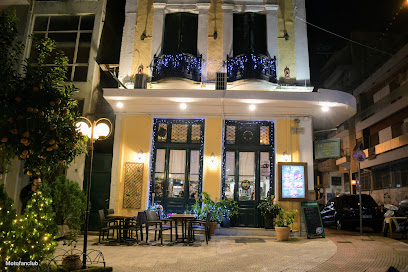
Il Tartuffo
Experience authentic Italian flavors at Il Tartuffo in Lamia - where every pizza tells a story.
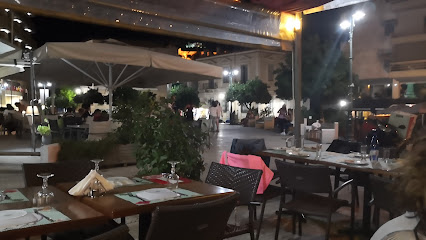
Tavern - Pericles
Savor traditional Greek flavors at Tavern - Pericles in Lamia; where every dish tells a story.
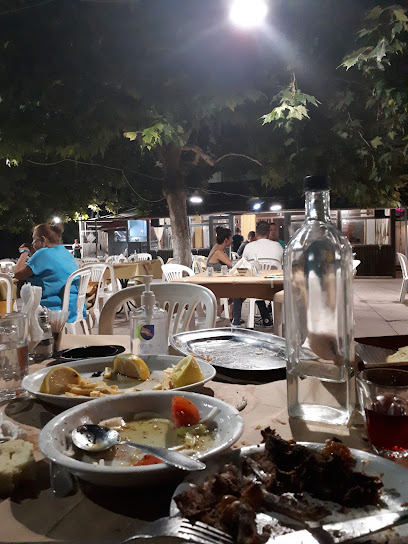
Coyote beer restaurant
Discover the vibrant flavors of Greece at Coyote Beer Restaurant in Lamia – where great food meets exceptional craft beer.
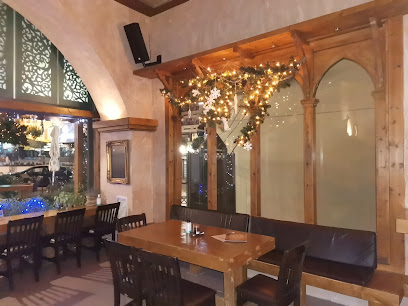
Chouliáras
Savor the rich flavors of Greece at Chouliáras in Lamia - an unforgettable grill experience awaits you!
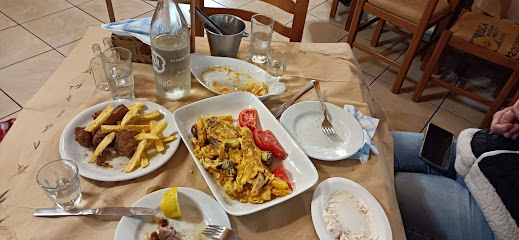
Skatzóchoiros
Experience authentic Greek cuisine at Skatzóchoiros in Lamia - where every meal tells a story of tradition and flavor.
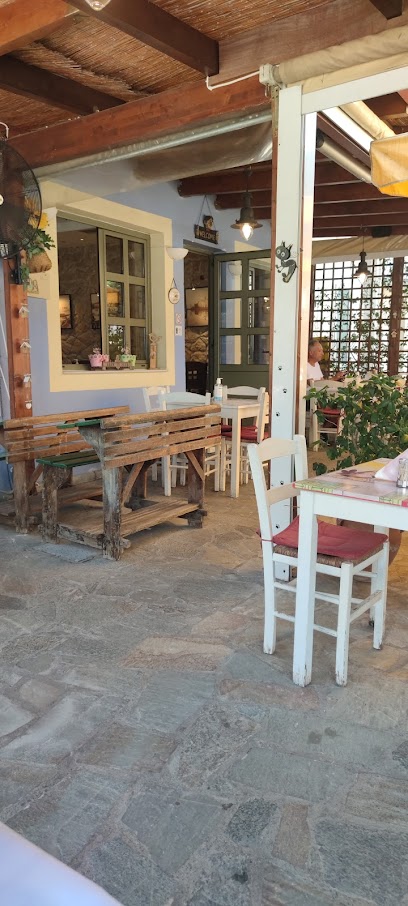
Markets, malls and hidden boutiques
Politikos
Explore Politikos in Lamia for a unique shopping experience blending local culture with modern retail delights.
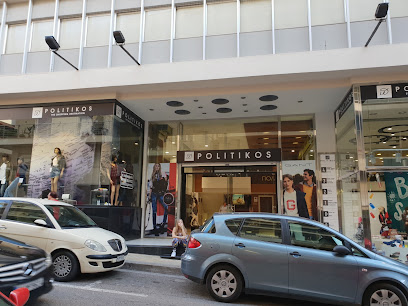
Bershka
Discover the latest fashion trends at Bershka in Lamia, where style meets affordability for men and women alike.
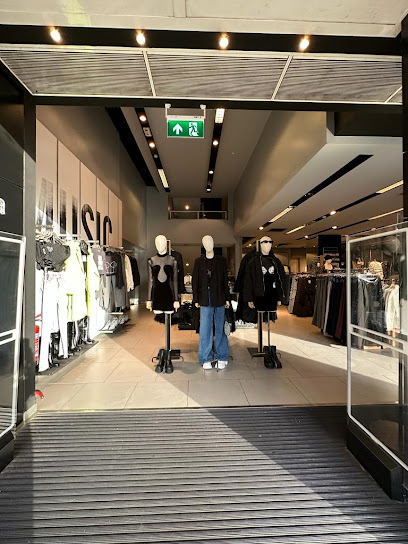
11oz-shop
Discover the latest trends in fashion at 11oz-shop, Lamia's go-to destination for stylish men's and women's apparel.
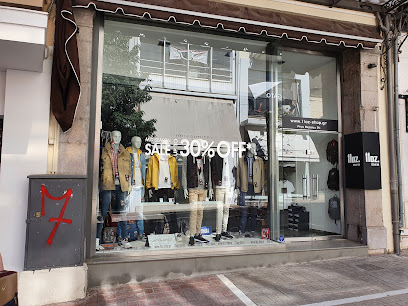
Κατάστημα Mind art - Χειροποίητο κόσμημα & Τέχνη
Explore the vibrant world of handcrafted jewelry and ceramics at Mind Art Workshop in Lamia, where every piece is a work of art.
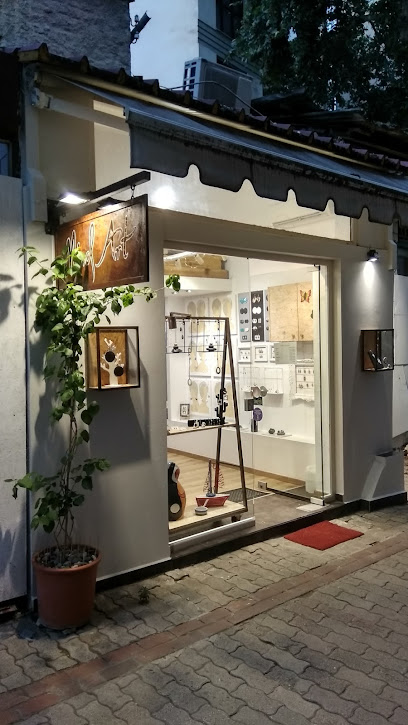
Ethnic
Explore Ethnic in Lamia for unique gifts and souvenirs that celebrate Greek culture, making your travel experience memorable.
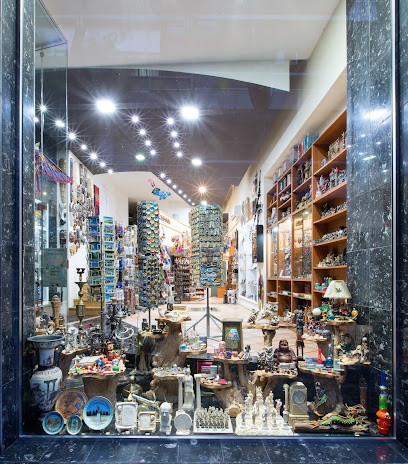
Stiletto Shop Lamia
Discover the ultimate shoe shopping experience at Stiletto Shop Lamia, where style meets quality in an elegant atmosphere.
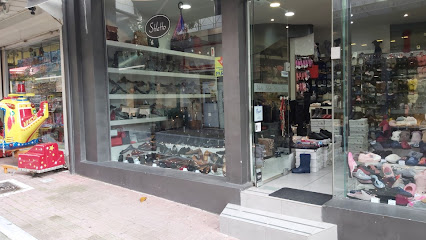
SL Boutique
Explore SL Boutique in Lamia for unique women's fashion, blending contemporary style and classic elegance in a charming shopping experience.
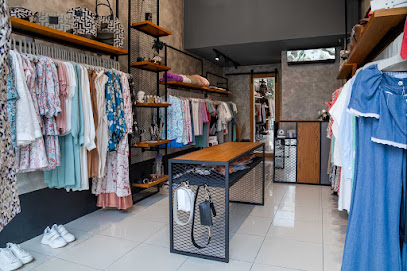
Accessori
Explore Accessori in Lamia for the latest in fashion accessories that blend style and quality, perfect for every fashion-loving traveler.
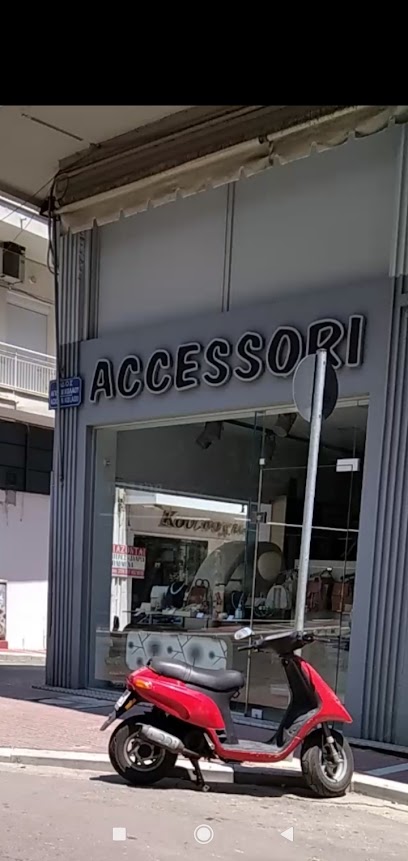
LK boutique for men (ΚΟΤΣΙΜΠΟΥ ΕΛΕΝΗ)
Discover exquisite men's fashion at LK Boutique in Lamia, where style meets sophistication in a charming shopping atmosphere.

Chraats -Ergowood
Discover unique gifts and local artistry at Chraats - Ergowood in Lamia, Greece, where every item tells a story.
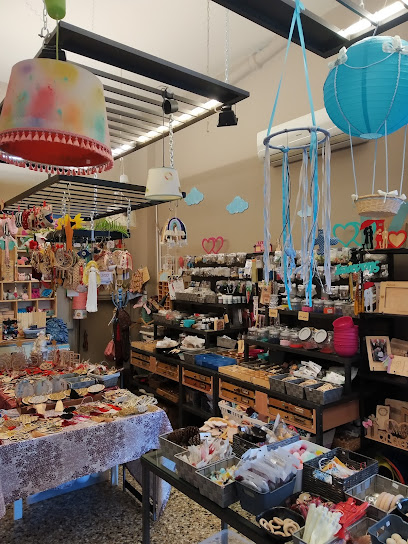
το Γαϊτανάκι
Explore the enchanting gift shop το Γαϊτανάκι in Lamia, where unique souvenirs and local crafts await every traveler seeking a piece of Greece.
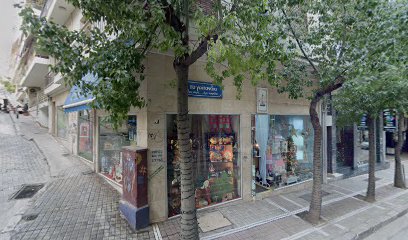
Parfois Lamia
Explore the chic selection of trendy accessories at Parfois Lamia, your go-to fashion destination in the heart of Greece.
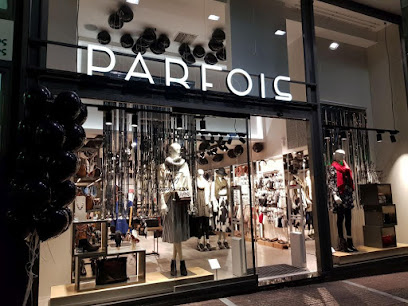
Lollipop
Discover stylish and comfortable baby clothing at Lollipop in Lamia, where every outfit is designed to delight both parents and their little ones.
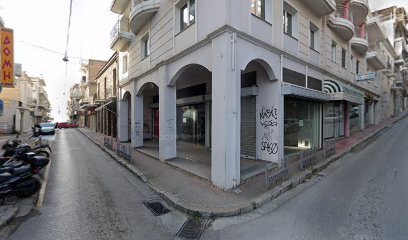
Emporio Grama Lamia
Explore the latest fashion trends at Emporio Grama Lamia, a premier clothing store in Lamia, Greece, offering unique styles for every taste.
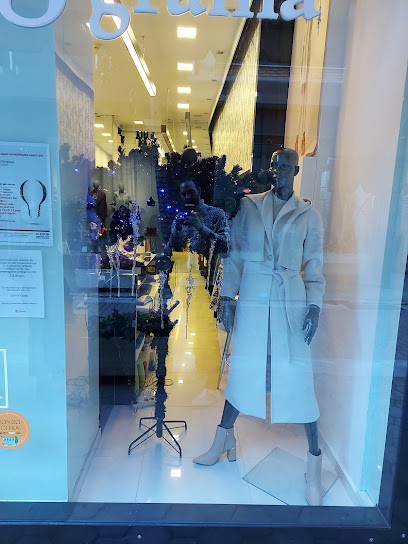
Kokkotas, G., - E. Konstantopoulou O.E.
Discover Kokkotas, a premier clothing store in Lamia, offering a unique blend of traditional and contemporary fashion styles for all tastes.
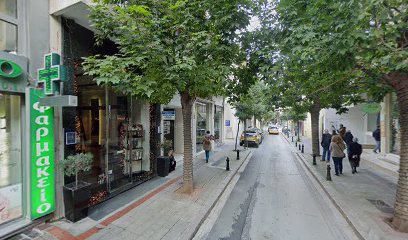
Essential bars & hidden hideouts
Crespo Wine Bar
Discover Crespo Wine Bar in Lamia - a delightful cafe offering exquisite wines, delicious bites, and a cozy atmosphere for every traveler.
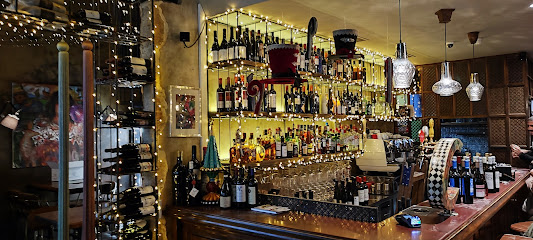
Dègagè
Experience the vibrant atmosphere and exquisite beverages at Dègagè, Lamia's top bar and coffee shop for tourists and locals alike.
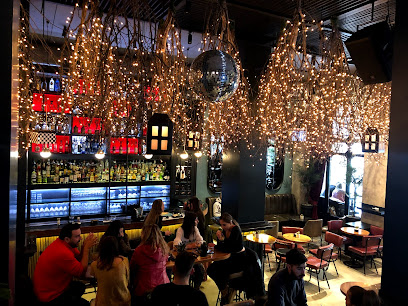
ΚΛΕΙΔΙ-The Street Food Project-
Explore the culinary delights of Greece at ΚΛΕΙΔΙ-The Street Food Project- in Lamia, where traditional flavors meet modern street food creativity.
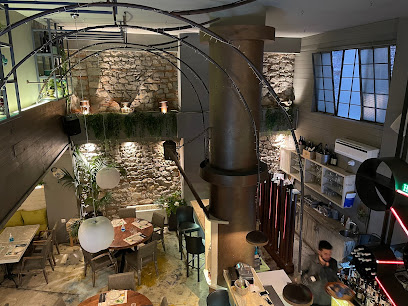
Central - The Bar
Experience the vibrant atmosphere of Central - The Bar in Lamia, where delightful beverages and warm hospitality await every visitor.
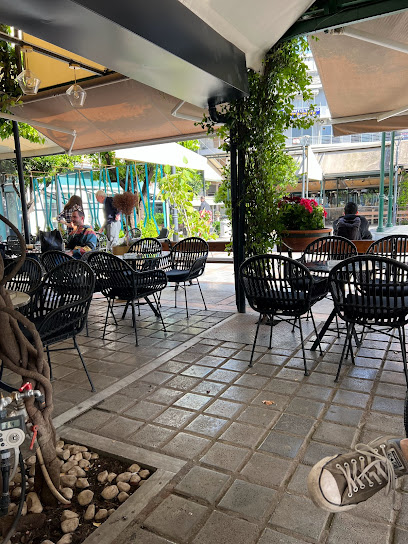
Venezia
Experience the vibrant ambiance and delightful flavors of Venezia, a charming bar and cafe in the heart of Lamia, Greece.
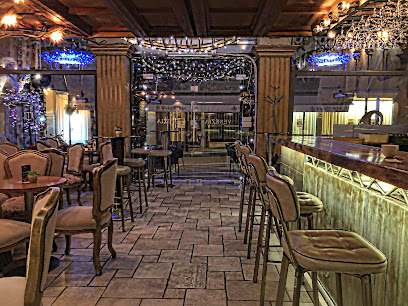
Sboúra
Discover the vibrant nightlife of Lamia at Sboúra, a lively bar offering a diverse drink menu and a welcoming atmosphere for all visitors.
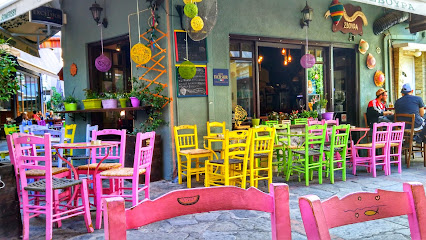
Black Velvet bar
Discover the vibrant nightlife of Lamia at Black Velvet Bar, where great music and exceptional drinks create unforgettable memories.
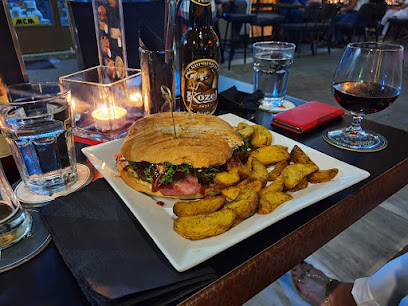
TWO SAINTS
Experience Lamia’s vibrant nightlife at Two Saints, a bar renowned for its extensive drink menu and inviting atmosphere.
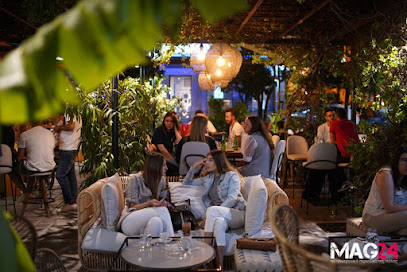
BLe' Coffee Bar&More
Experience the dynamic blend of coffee culture and nightlife at BLe' Coffee Bar&More in Lamia, featuring live music and delicious drinks.
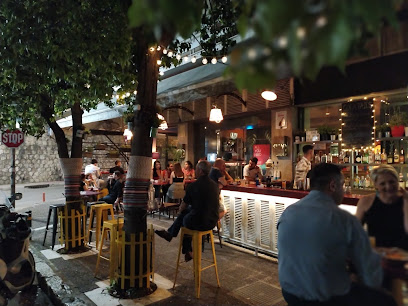
Coyote beer restaurant
Experience the fusion of traditional Greek cuisine and modern gastropub flair at Coyote Beer Restaurant in Lamia.
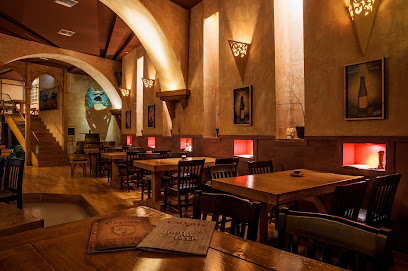
Eméteron
Experience the vibrant nightlife at Eméteron, Lamia's premier bar renowned for its local flavors and lively atmosphere.
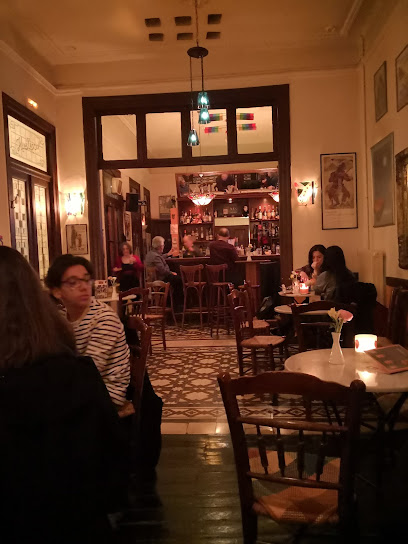
Ciel Rooftop Bar
Unwind at Ciel Rooftop Bar, where breathtaking views meet exquisite cocktails in the heart of Lamia's nightlife.
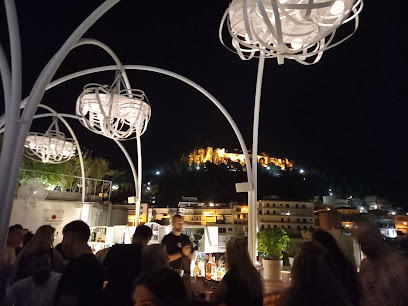
Fuego coffe bar
Discover the charm of Fuego Coffee Bar in Lamia, where aromatic brews and a cozy atmosphere create the perfect retreat.
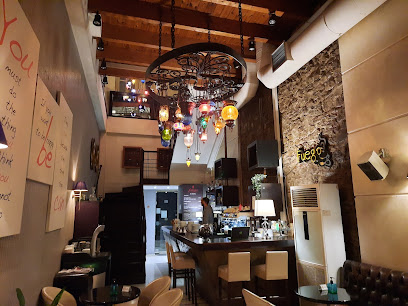
Soul bar
Experience the finest wines and a vibrant atmosphere at Soul Bar, the ultimate destination for relaxation in Lamia, Greece.
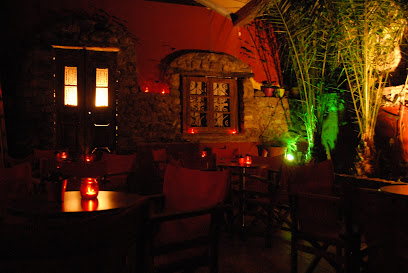
Travel experiences inspired by this city
Explore more travel diariesLocal Phrases
-
- HelloΓεια σας
[Ya sas] - GoodbyeΑντίο
[Adio] - YesΝαι
[Ne] - NoΌχι
[Ohi] - Please/You're welcomeΠαρακαλώ
[Parakalo] - Thank youΕυχαριστώ
[Efharisto] - Excuse me/SorryΣυγγνώμη
[Signomi] - How are you?Πώς είστε;
[Pos iste?] - Fine. And you?Καλά. Εσύ;
[Kala. Esi?] - Do you speak English?Μιλάτε Αγγλικά;
[Milate Agglika?] - I don't understandΔεν καταλαβαίνω
[Den katalaveno]
- HelloΓεια σας
-
- I'd like to see the menu, pleaseΘα ήθελα να δω το μενού, παρακαλώ
[Tha ithela na do to menou, parakalo] - I don't eat meatΔεν τρώω κρέας
[Den troo kreas] - Cheers!Υγεία!
[Igeia!] - I would like to pay, pleaseΘα ήθελα να πληρώσω, παρακαλώ
[Tha ithela na plirosso, parakalo]
- I'd like to see the menu, pleaseΘα ήθελα να δω το μενού, παρακαλώ
-
- Help!Βοήθεια!
[Voi8eia!] - Go away!Φύγε!
[Fiye!] - Call the Police!Καλέστε την Αστυνομία!
[Kaleste tin Astinomia!] - Call a doctor!Καλέστε έναν γιατρό!
[Kaleste enan giatro!] - I'm lostΈχω χαθεί
[Eho hathi] - I'm illΕίμαι άρρωστος
[Eimai arrostos]
- Help!Βοήθεια!
-
- I'd like to buy...Θα ήθελα να αγοράσω...
[Tha ithela na agoraso...] - I'm just lookingΑπλά κοιτάω
[Apla kitao] - How much is it?Πόσο κοστίζει;
[Poso kostizi?] - That's too expensiveΑυτό είναι πολύ ακριβό
[Afto ine poli akribo] - Can you lower the price?Μπορείτε να χαμηλώσετε την τιμή;
[Borite na hamilosete tin timi?]
- I'd like to buy...Θα ήθελα να αγοράσω...
-
- What time is it?Τι ώρα είναι;
[Ti ora ine?] - It's one o'clockΕίναι μία ώρα
[Ine mia ora] - Half past (10)Μισή (10)
[Misi (10)] - MorningΠρωί
[Proi] - AfternoonΑπόγευμα
[Apogeuma] - EveningΒράδυ
[Vradi] - YesterdayΧθες
[Hthes] - TodayΣήμερα
[Simera] - TomorrowΑύριο
[Avrio] - 1Ένα
[Ena] - 2Δύο
[Dio] - 3Τρία
[Tria] - 4Τέσσερα
[Tessera] - 5Πέντε
[Pente] - 6Έξι
[Exi] - 7Επτά
[Epta] - 8Οκτώ
[Okto] - 9Εννέα
[Ennea] - 10Δέκα
[Deka]
- What time is it?Τι ώρα είναι;
-
- Where's a/the...?Πού είναι ένα/το...;
[Pou ine ena/to...?] - What's the address?Ποια είναι η διεύθυνση;
[Poia ine i diefthinsi?] - Can you show me (on the map)?Μπορείτε να μου δείξετε (στο χάρτη);
[Borite na mou dixete (sto charti)?] - When's the next (bus)?Πότε είναι το επόμενο (λεωφορείο);
[Pote ine to epomeno (leoforeio)?] - A ticket (to ....)Ένα εισιτήριο (για ...);
[Ena isitirio (ya ...)?]
- Where's a/the...?Πού είναι ένα/το...;
History of Lamia
-
Lamia, located in central Greece, has a history that dates back to antiquity. The city was named after the mythological figure Lamia, a daughter of Poseidon. In ancient times, Lamia was part of the region known as Phthiotis and played a significant role in various historical events due to its strategic location.
-
One of the most notable events in Lamia's history is the Lamian War, which took place from 323 to 322 BCE. Following the death of Alexander the Great, several Greek city-states, led by Athens, revolted against Macedonian rule. Lamia served as the focal point of this conflict, with the Athenians and their allies besieging the city. Despite their efforts, the Macedonian forces ultimately triumphed.
-
During the Roman period, Lamia continued to be an important urban center. The city was integrated into the Roman Empire and benefited from the infrastructure and governance that came with Roman rule. Roads, public buildings, and other amenities were developed, enhancing Lamia's status in the region.
-
In the Byzantine era, Lamia was fortified and became a significant stronghold. The medieval period saw the city changing hands multiple times, including occupation by the Crusaders and later the Ottoman Turks. The city's fortifications were expanded, and it played a crucial role in regional defense.
-
Lamia was under Ottoman control from the 15th century until the Greek War of Independence in the early 19th century. During this period, the city experienced economic and cultural changes. Lamia played a part in the struggle for Greek independence, with local heroes contributing to the cause. The city was officially incorporated into the modern Greek state after the war.
-
In the 20th century, Lamia developed into a modern urban center. During World War II, the city was occupied by Axis forces, and it faced significant hardships. The post-war period saw reconstruction and development, transforming Lamia into the vibrant city it is today.
-
Today, Lamia is known for its rich cultural heritage and vibrant community life. The city's historical landmarks, such as the Lamia Castle, the Archaeological Museum, and various Byzantine churches, attract visitors from around the world. Lamia continues to celebrate its history through festivals, cultural events, and educational programs, ensuring that its storied past remains an integral part of its identity.
Lamia Essentials
-
Lamia is located in central Greece and is easily accessible from major cities. The nearest major airport is Eleftherios Venizelos International Airport in Athens, approximately 210 kilometers away. From Athens, you can take a direct bus to Lamia, which typically takes around 3 hours. Alternatively, you can take a train from Athens to Lamia, which offers a scenic route through the Greek countryside. Driving is also an option, with well-maintained highways connecting Lamia to other parts of Greece.
-
Lamia has a well-organized public transportation system, including buses that connect different parts of the city and surrounding areas. Local taxis are also readily available and reasonably priced. For those looking to explore the region at their own pace, car rental services are available in the city. Biking is another option for getting around, especially in the more scenic parts of Lamia.
-
The official currency in Greece is the Euro (EUR). Credit and debit cards are widely accepted in Lamia, especially in hotels, restaurants, and larger shops. However, it is advisable to carry some cash for smaller establishments, local markets, or rural areas. ATMs are plentiful throughout the city, so withdrawing cash is convenient.
-
Lamia is generally a safe city for tourists. However, it is always wise to take standard precautions. Avoid isolated areas after dark and keep an eye on your belongings in crowded places. While violent crime is rare, petty thefts such as pickpocketing can occur, especially in tourist-heavy areas. There are no specific high-crime neighborhoods targeting tourists, but staying vigilant is always recommended.
-
In case of an emergency, dial 112, the European emergency number, for immediate assistance. Lamia has well-equipped medical facilities, including a general hospital and several clinics. Pharmacies are widely available for minor health issues and over-the-counter medications. It is recommended to have travel insurance that covers medical emergencies.
-
Fashion: Do dress modestly, especially when visiting religious sites. Avoid overly revealing clothing. Religion: Do respect local customs and traditions. Always remain quiet and respectful when visiting churches and other religious sites. Public Transport: Do be courteous and offer seats to elderly passengers or those in need. Don't eat or drink on public transport. Greetings: Do greet people with a handshake or a friendly nod. Personal space is respected in Greece, so keep interactions polite. Eating & Drinking: Do try local dishes and accept food offerings graciously. Don’t leave large tips; a small amount is sufficient, as service charges are often included.
-
To experience Lamia like a local, visit the local markets, such as the Central Market, where you can find fresh produce and traditional Greek goods. Engage with locals, as they are often friendly and willing to share stories about the city’s history and culture. Don’t miss the opportunity to explore the nearby natural attractions, such as Mount Oeta and the Thermopylae pass. For a unique experience, visit during local festivals, such as the annual Lamia Festival, to enjoy traditional music, dance, and food.
Trending Landmark in Lamia
-
Monastery of Agathon
-
Historical Information Center for Thermopylae
-
Castle of Lamia (Akrolamia)
-
Pelasgia Beach
-
Statue of Aris Velouchiotis
-
Athanasios Diakos monument
-
Archaeological Museum of Lamia
-
Στήλη των 300 Σπαρτιατών
-
Mnimio Ellina Aeroporou
-
Monument of War
-
Pl. Laou
-
Pl. Karaiskaki
-
Pl. Eleftherias
-
Πλ. Πάρκου
-
Pl. Diakou
Nearby Cities to Lamia
-
Things To Do in Delphi
-
Things To Do in Volos
-
Things To Do in Larissa
-
Things To Do in Patras
-
Things To Do in Meteora
-
Things To Do in Nafplio
-
Things To Do in Athens
-
Things To Do in Katerini
-
Things To Do in Olympia
-
Things To Do in Ioannina
-
Things To Do in Zakynthos
-
Things To Do in Thessaloniki
-
Things To Do in Kalamata
-
Things To Do in Corfu
-
Things To Do in Saranda





















